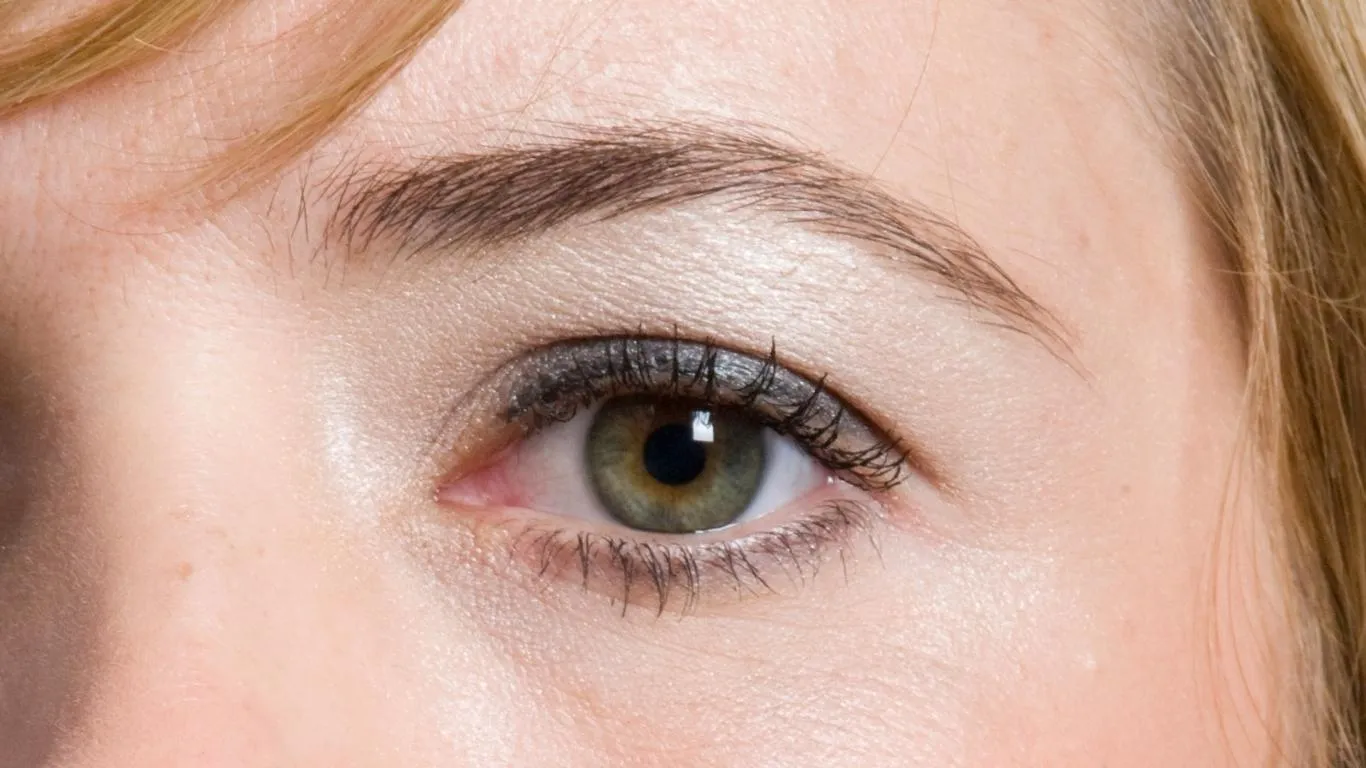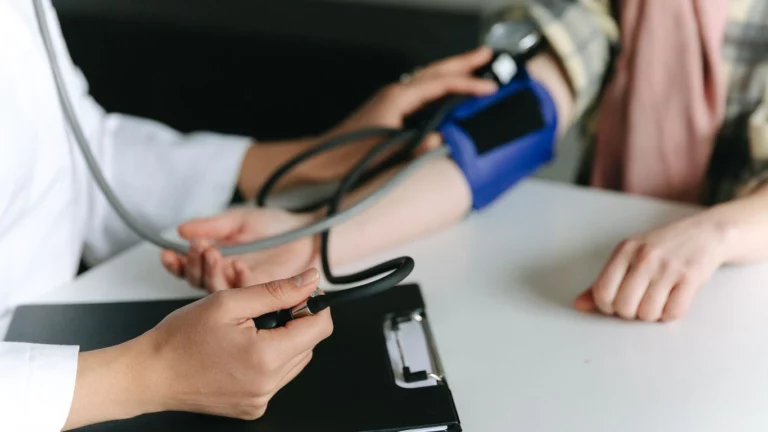Why Floaters After Emotional Breakdowns May Worsen Your Vision
It happened after one of the worst weeks of my life. Stress was pouring from every direction—work chaos, family drama, sleepless nights—and then came the weirdest thing: little squiggly shapes drifting across my vision. I blinked. Still there. I looked away. Still there. At first, I chalked it up to exhaustion or dry eyes, but when they didn’t go away, I started to worry. Were they connected to the emotional mess I had just been through? That’s how I found myself going deep into the connection between emotional breakdowns and eye floaters. Turns out, there’s more to it than I thought.
Can Intense Emotions Actually Trigger Eye Floaters?
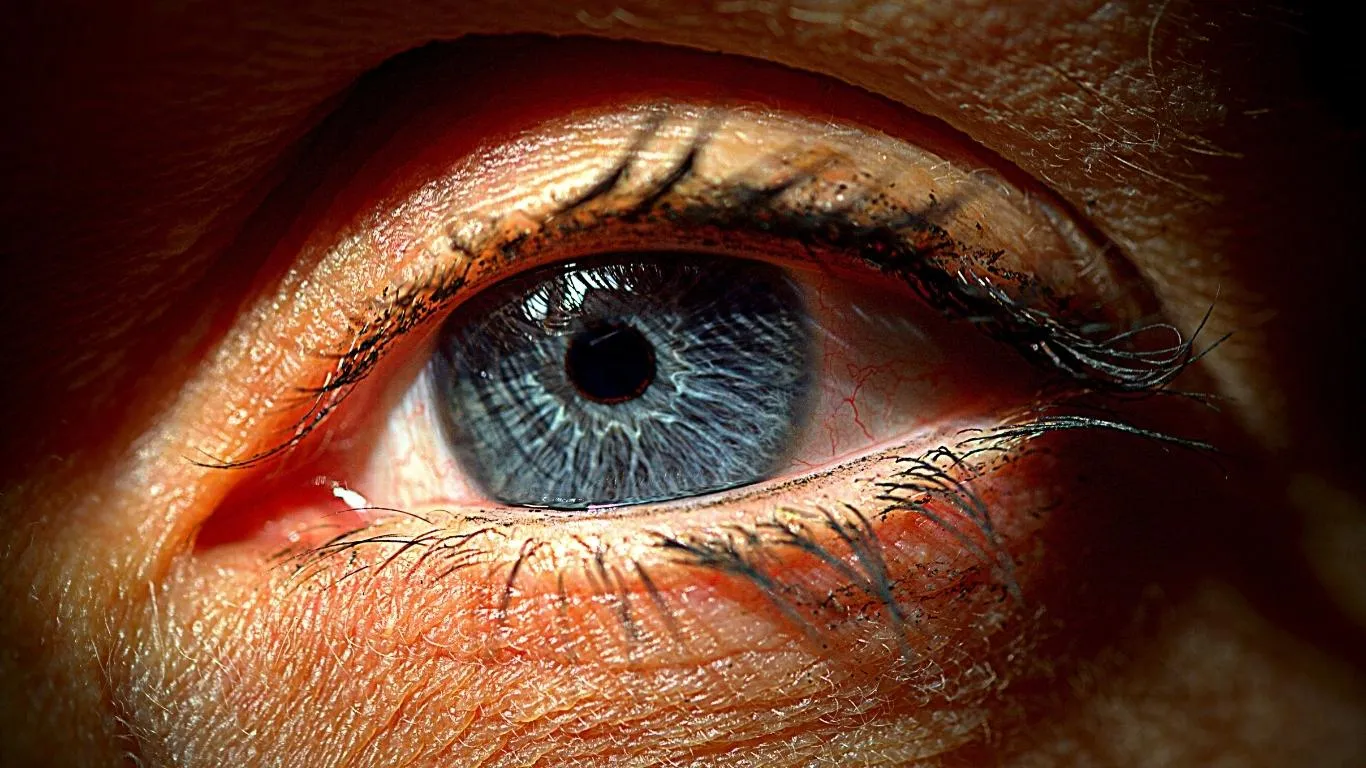
Let’s get one thing straight—eye floaters are mostly harmless, those weird translucent threads or dots you sometimes see drifting around when you look at something bright. They’re actually tiny bits of collagen or debris floating inside the vitreous—the jelly-like part of your eye. But when you’re under extreme emotional distress, the situation can get tricky.
I noticed mine popped up after a huge emotional crash. That wasn’t just a coincidence. Emotional stress causes your body to release cortisol and other stress hormones. These affect everything from your heart to your gut—and yep, even your eyes.
Floaters might become more noticeable or even increase during times of mental distress due to:
- Increased blood pressure, which can affect blood vessels in the eyes
- Eye strain from crying or screen exposure during anxiety episodes
- Dehydration due to stress-induced neglect of basic self-care
- Changes in vitreous consistency triggered by hormonal imbalances
In fact, according to the National Eye Institute, persistent visual disturbances should not be ignored—especially if they suddenly increase.
The Body-Mind-Eye Connection
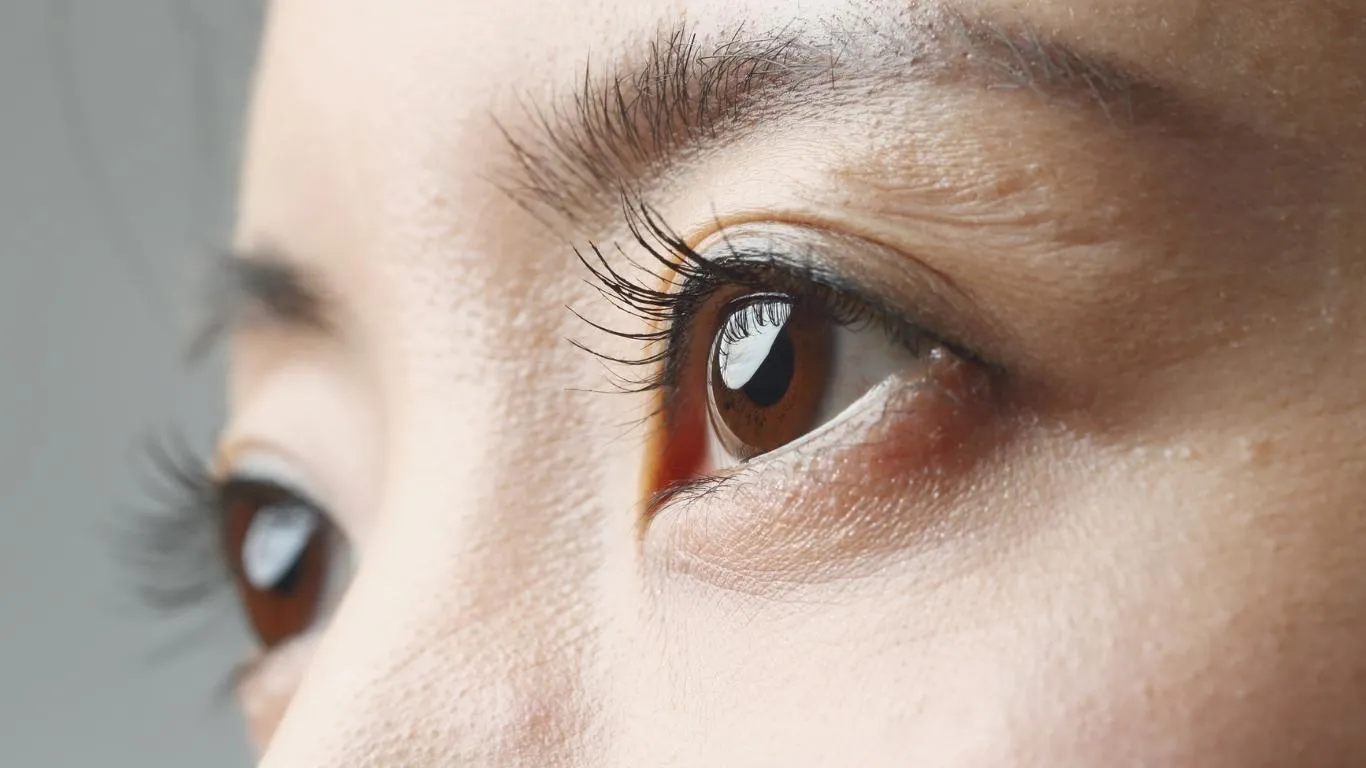
Ever noticed how your body reacts physically to your emotions? Tight chest, headaches, blurry vision? Our minds and bodies are in sync more than we realize. The eyes are highly sensitive to subtle shifts in physiology, especially during and after a breakdown.
One overlooked factor is how emotional trauma can make floaters stick around longer. When your nervous system is out of balance, the body stays in a heightened state of tension. This can increase perception of floaters, making them more intrusive than usual.
My Personal Observation
After a particularly rough crying spell, I remember looking at my white kitchen wall and thinking it had bugs crawling across it. Nope—just floaters. But they were so vivid, so distracting, it almost felt like my brain was amplifying them. I started to notice that on calmer days, they faded into the background. That’s when it clicked: my mental state was literally changing how I saw the world.
Is There Any Physical Damage Happening?
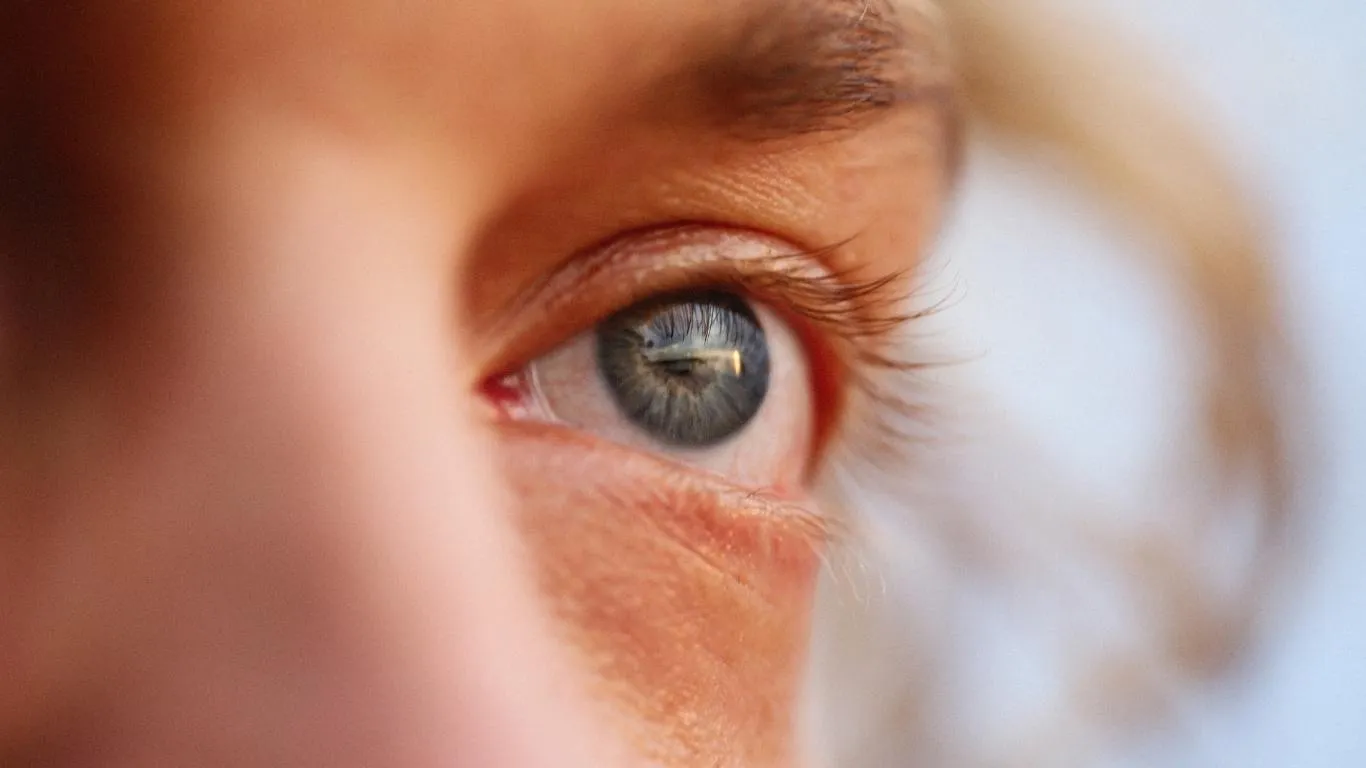
This part gets a little technical but it’s crucial. Emotional breakdowns may not cause structural eye damage directly—but they can worsen underlying conditions. For example, if you already have age-related vitreous changes or mild myopia, high stress could tip the balance.
Sudden and severe emotional upheaval has been linked to spikes in blood pressure, and in rare cases, eye pain or vision disruption could signal something more serious like a retinal tear. So, if those floaters come on fast and furious, especially with flashes or loss of vision, don’t wait. Seek professional help.
Hormones & Vision: An Underestimated Duo
Let’s not forget the hormonal angle. Emotional breakdowns don’t live in a vacuum—they often come with hormonal chaos. Cortisol, adrenaline, even estrogen and testosterone fluctuations can influence eye fluid consistency and inflammation.
Hormonal shifts like these are also discussed in this breakdown of hormonal floaters. It’s not just about being sad or anxious; your whole body is in a swirl, and your eyes are caught in the middle.
What Helped Me (And Might Help You Too)
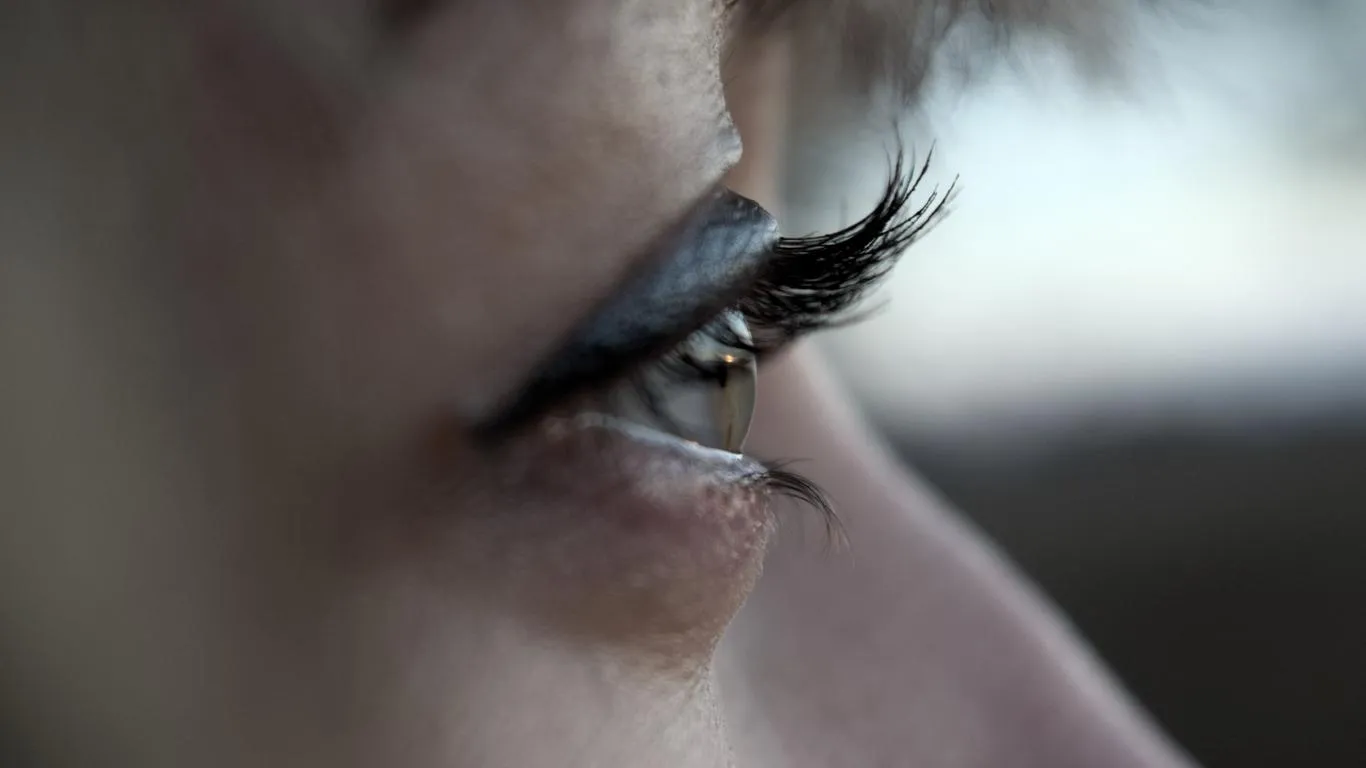
I’m not a doctor, but I became a bit of a floater detective after my breakdown. Here’s what made a big difference for me:
- Hydration: Drinking more water helped reduce that dry, gritty sensation and maybe even floaters’ prominence.
- Eye breaks: Every 20 minutes, I looked at something far away. It reduced eye fatigue massively.
- Magnesium: There’s decent evidence that magnesium supports nerve relaxation. One piece from Healthusias dives into that.
- Journaling: Not exactly an eye remedy, but calming the mind seemed to quiet the floaters too. Go figure.
Learn More About the Root Causes
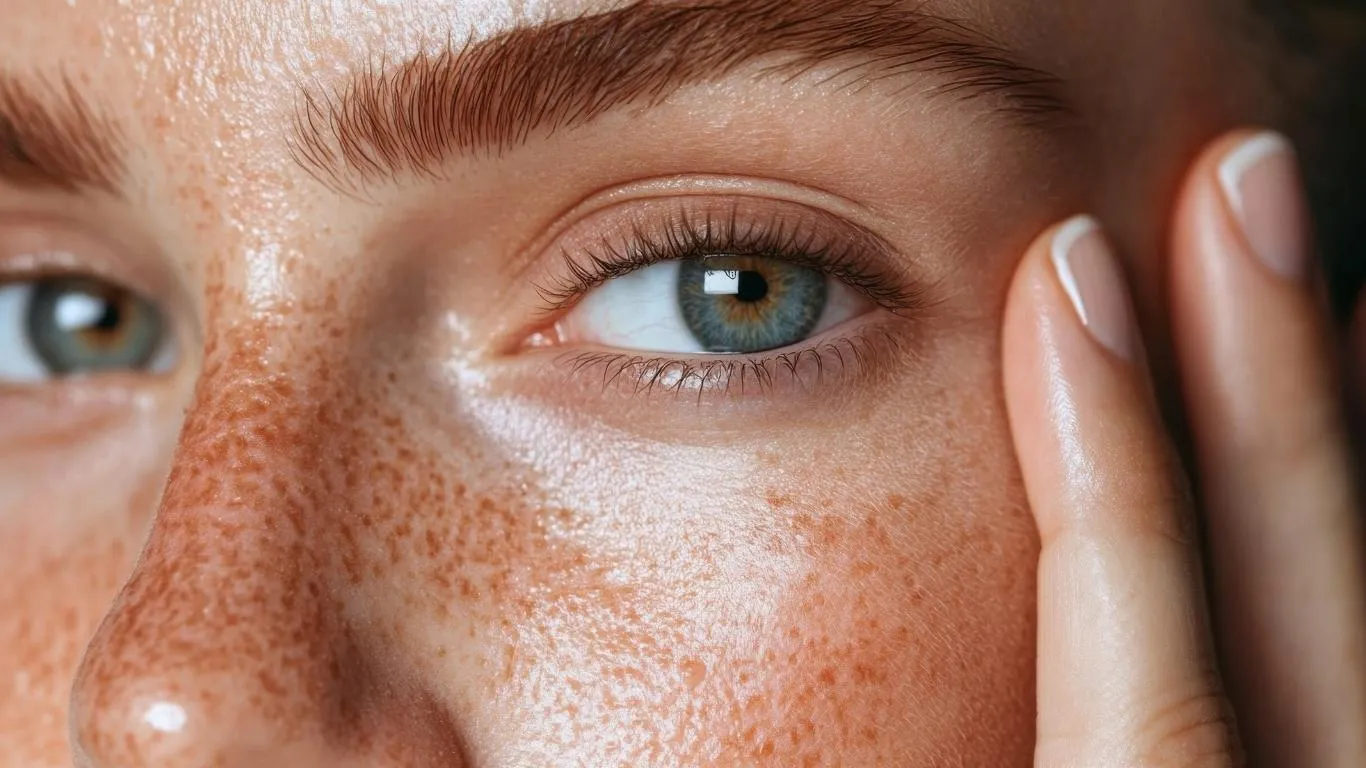
If you’re still unsure what’s going on inside your eyes, it helps to understand what floaters really are. That main resource breaks it down clearly—covering causes, treatments, and when you should worry.
For deeper insights into when floaters can signal something more dangerous, Healthusias has a great guide on danger signs you shouldn’t ignore. It helped me figure out when to relax and when to call my eye doc.
Why Do Floaters Linger Long After the Breakdown Ends?
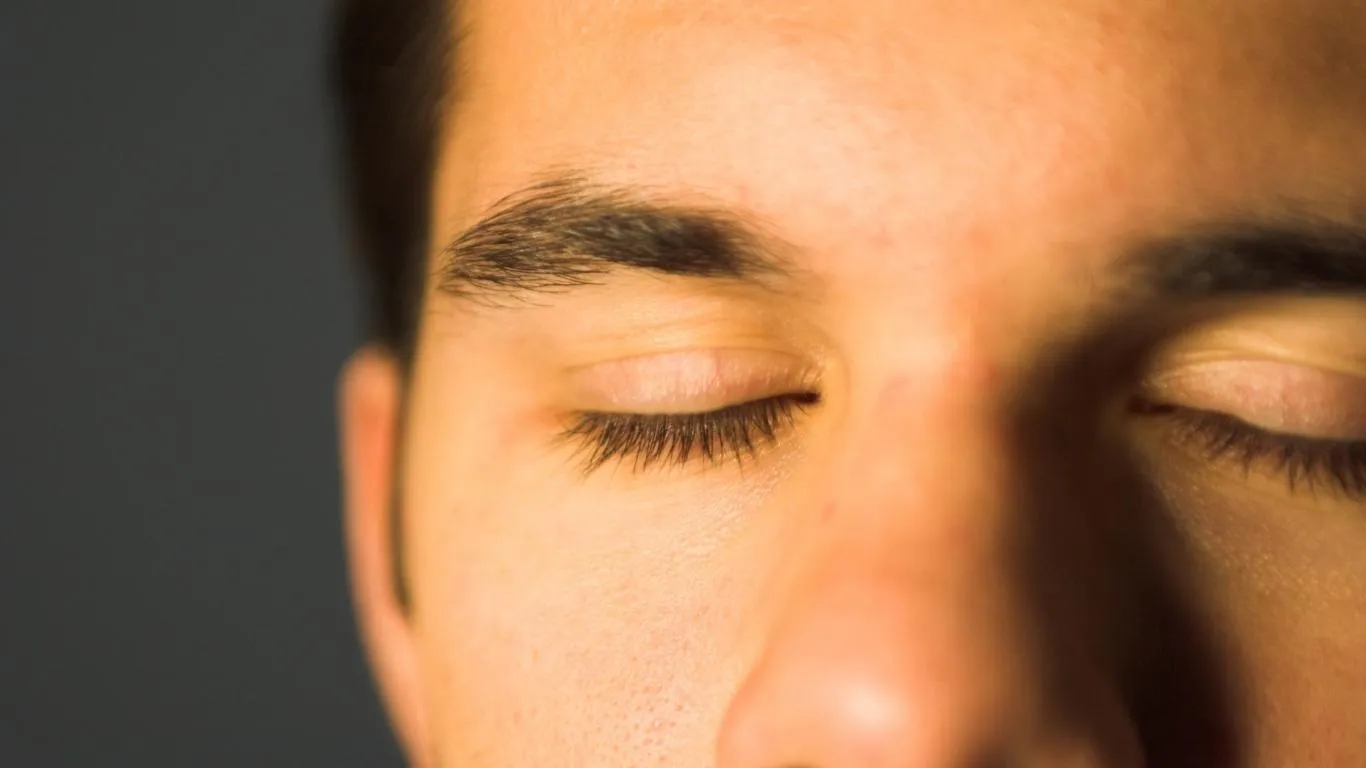
One thing that seriously messed with me: the floaters didn’t just vanish once I calmed down. I expected them to fade with the anxiety. They didn’t. It made me feel like I wasn’t “done” healing. Turns out, that’s pretty common. Floaters are physical changes inside the eye, and emotional recovery doesn’t undo them overnight.
If your stress was intense enough to cause significant hormonal disruption or blood pressure shifts, that may have set off subtle eye changes—microtears in the vitreous, slow collagen clumping, or even traction near the retina. While not dangerous on their own, they’re not quick to go away either.
According to the American Academy of Ophthalmology, most floaters gradually settle lower in the vitreous over weeks or months, becoming less noticeable. But if you’re hyper-aware due to emotional distress, you may keep noticing them longer than most people would.
How Long Is “Normal” for Floaters to Hang Around?
From my own experience (and obsessively reading forums at 3 a.m.), the timeline is all over the place. Some people forget their floaters within days. Others—myself included—take months to adjust. But when they’re tied to an emotional breakdown, it feels like your brain keeps the “visual noise” turned up louder.
It might help to read this timeline-based breakdown on how long floaters last. It gave me peace of mind when I thought mine were overstaying their welcome.
Why Emotional Recovery Is Just as Important as Eye Health

Let’s be honest—if you’re Googling floaters after an emotional breakdown, it’s not just about your eyes. It’s about feeling overwhelmed, disoriented, maybe even scared. Floaters become a symbol of something bigger: “I’m not okay right now.” And that’s okay to admit.
What helped me most wasn’t a fancy supplement or expensive eye drop. It was slowing down. It was letting myself sleep more, asking for help, crying without judgment, and slowly giving my nervous system a break.
Sure, I still do the eye stuff. I follow some simple floaters exercises from Healthusias and check in with my optometrist. But truthfully? The real work was emotional.
Is This All In Your Head?
Short answer: no. But also… kinda. Here’s what I mean: the floaters are real, the changes in your eye are real—but how we perceive them gets dialed up by anxiety, depression, and trauma. It’s similar to how chronic pain can become louder when your mental health is down. It’s not fake; it’s amplified.
And just like with chronic pain, that doesn’t mean you have to live in misery. Cognitive reframing, mindfulness, and even talking to someone who gets it can soften your brain’s grip on those floaters.
Can Eye Floaters Signal Deeper Health Problems?
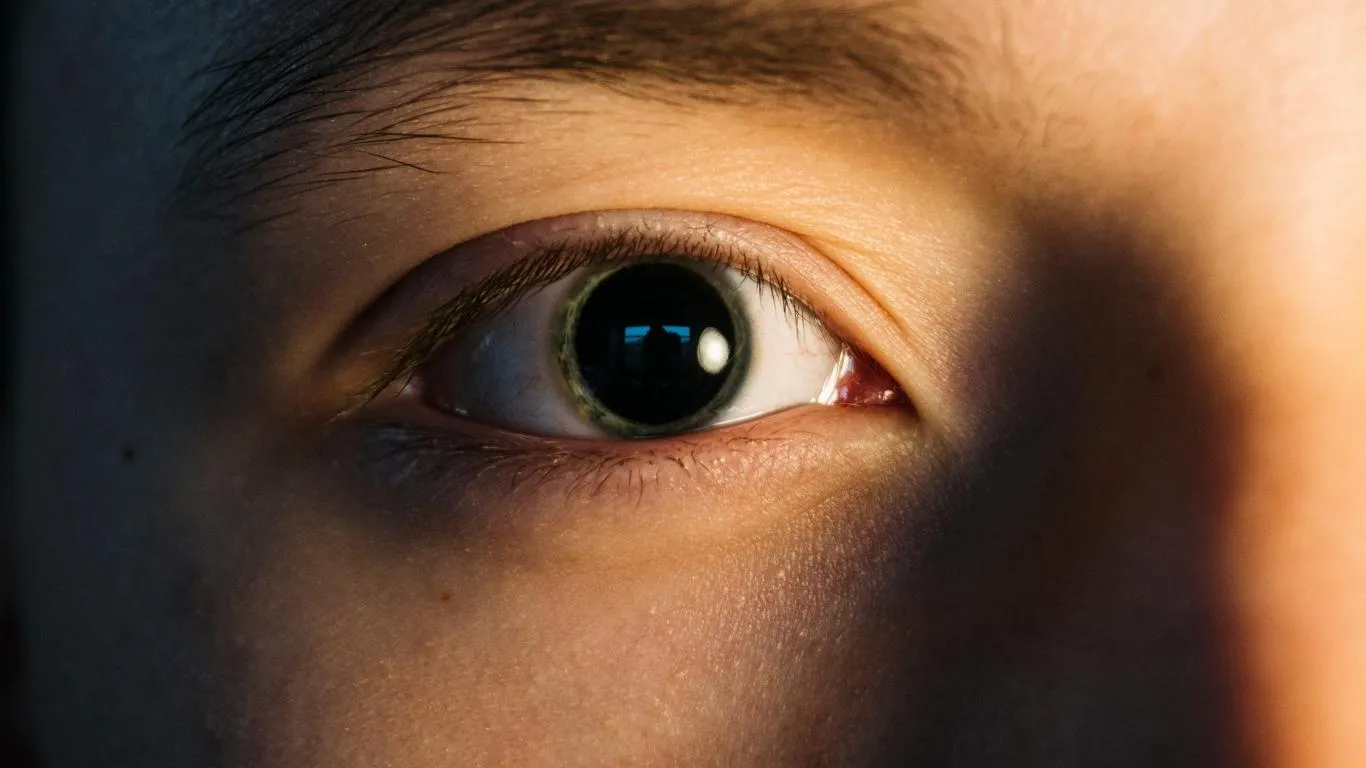
Okay, here’s where I need to sound a tiny bit serious: not every floater is benign. Especially after an emotional crash, some people experience physical symptoms they brush off as “just stress.” That can include visual disturbances that deserve real attention.
If your floaters are accompanied by any of the following, get checked out sooner than later:
- Sudden onset of a shower of floaters
- Flashes of light, even with eyes closed
- Loss of peripheral vision
- Dark curtain-like shadows
These symptoms might point to a retinal tear or detachment. Here’s a straightforward breakdown on what floaters can signal about your retina. It’s worth a read if anything feels off.
When to Talk to an Eye Doctor (and What to Say)
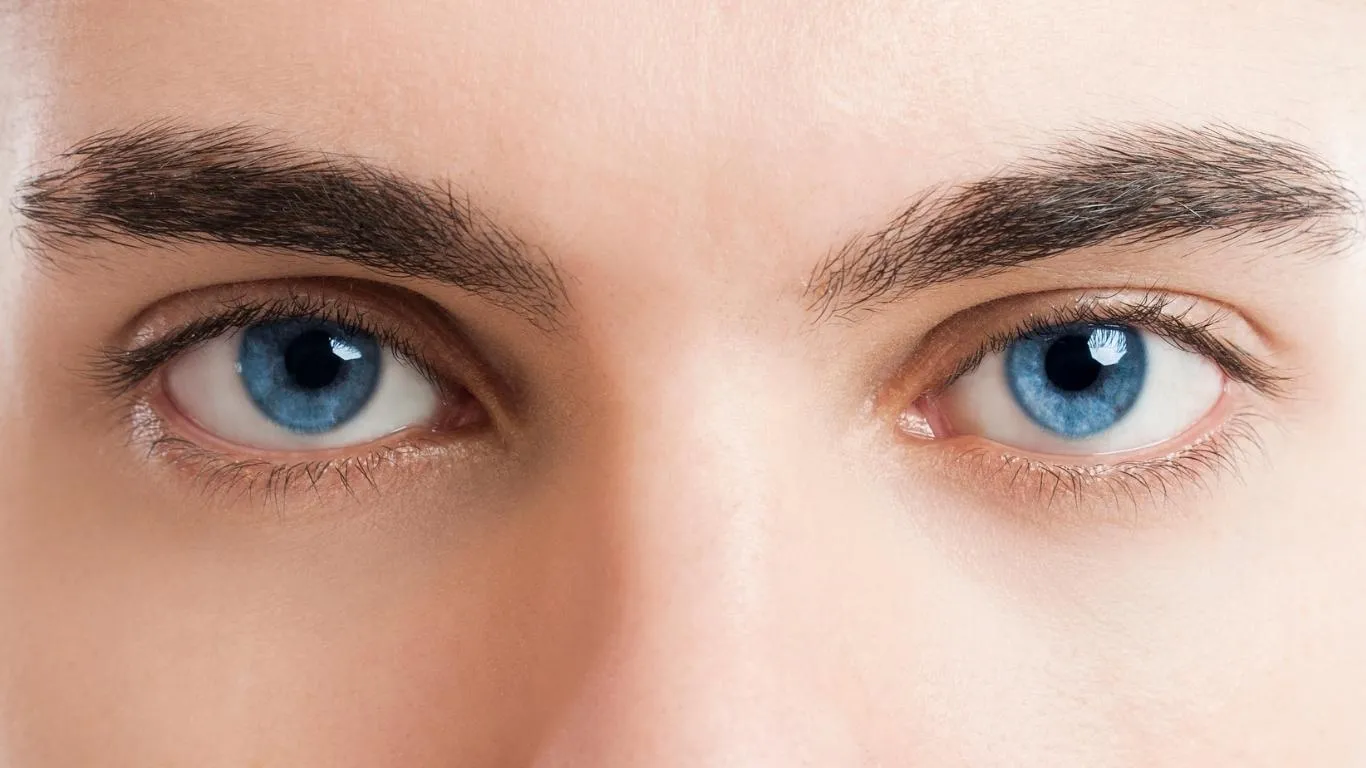
When I finally booked my eye exam, I wasn’t sure what to even say. “I cried for three days straight and now I’m seeing worms?” It felt ridiculous. But it wasn’t. My eye doctor told me she sees this often—people overwhelmed by life who then start noticing every little thing visually. Floaters just happen to be the most obvious symptom.
If you’re making an appointment, be honest. Tell them how long you’ve seen the floaters, what they look like, and any emotional stress you’ve gone through. Don’t downplay it. Your mental state matters when it comes to physical symptoms.
Also, bookmark this treatment guide so you know your options in case your floaters start to really interfere with life.
Looking Deeper Into the Mind-Eye Relationship
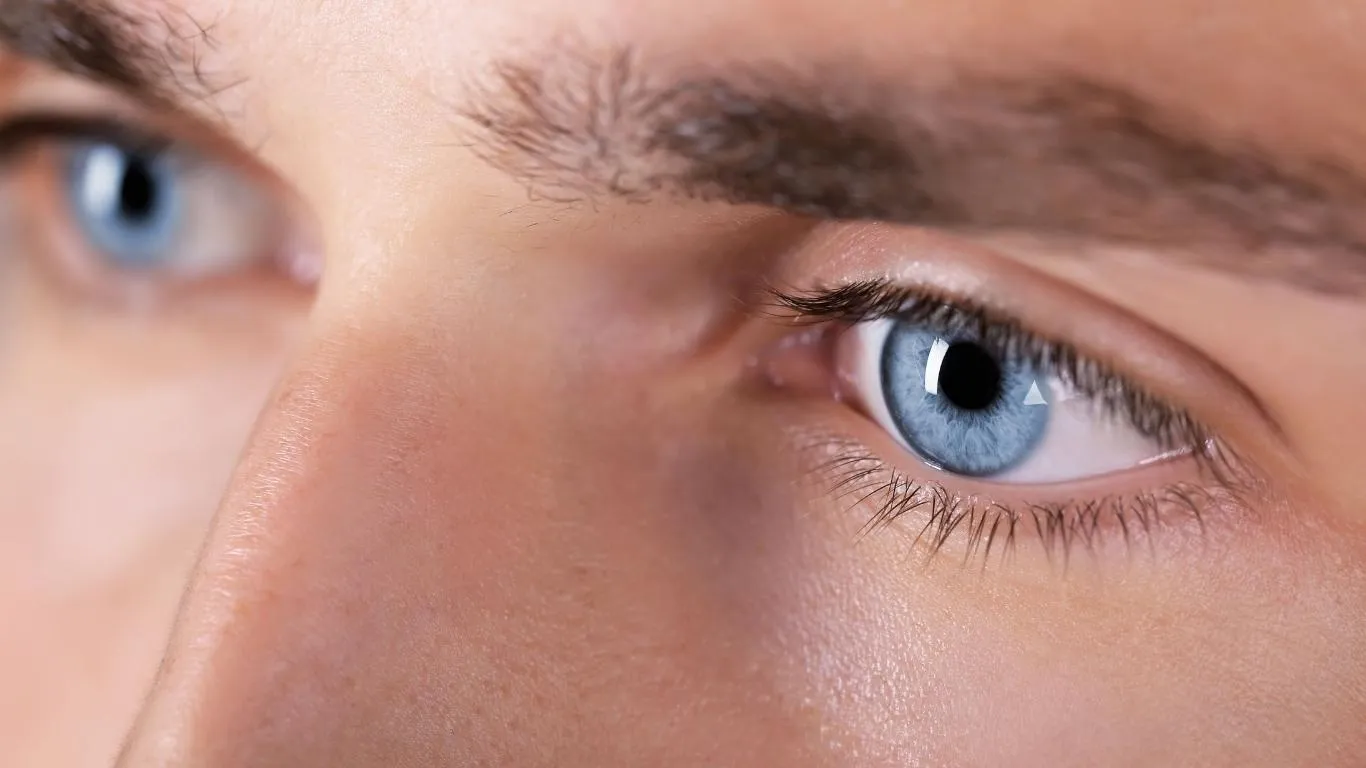
It’s wild how something so small—just a few floating specs in your eye—can turn your world upside down. Especially when you’re already emotionally raw. But floaters, as annoying as they are, can also be a signal: your body needs you. Your mind needs space. You might need rest, or maybe support, or maybe just someone to say, “Yeah, that’s scary. I get it.”
If you’re going through this, you’re not alone. Emotional distress doesn’t end just because the tears stop. And floaters might linger, but so will your strength. You’ve made it this far. Keep going.
For a deeper understanding of how eye floaters differ from other vision problems, this guide compares floaters to other common issues. Super helpful if you’re not sure what you’re actually dealing with.
Still curious about the science behind floaters and everything they relate to? This main pillar article explains everything in detail.

Camellia Wulansari is a dedicated Medical Assistant at a local clinic and a passionate health writer at Healthusias.com. With years of hands-on experience in patient care and a deep interest in preventive medicine, she bridges the gap between clinical knowledge and accessible health information. Camellia specializes in writing about digestive health, chronic conditions like GERD and hypertension, respiratory issues, and autoimmune diseases, aiming to empower readers with practical, easy-to-understand insights. When she’s not assisting patients or writing, you’ll find her enjoying quiet mornings with coffee and a medical journal in hand—or jamming to her favorite metal band, Lamb of God.

